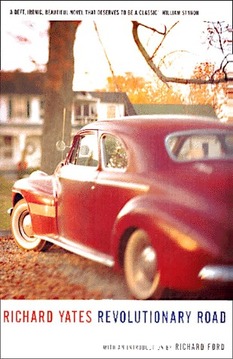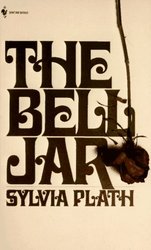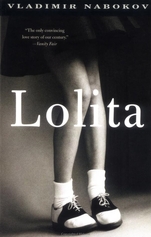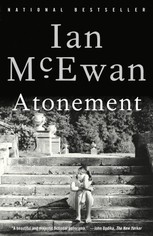
Revolutionary Road is a very honest look at married life in the suburbs in 1950s America—certainly the best of that type I've ever read, though that would say a lot more if I'd ever read another book on the topic. The setting was, unsurprisingly, similar to that of Lolita, and the characterizations reminded me of those in Catcher in the Rye—except, where Holden Caulfield is a whiny, narcissistic phony of a slacker student, Frank Wheeler is a self-conscious, narcissistic phony of a slacker office worker. Not to mention the fifteen-year age difference. But that is neither here nor there.
All in all, this is a very well-written novel, shining a harsh light onto the white-picket-fence 1950s lifestyle that is so often glorified by American culture. It shows the suit-wearing commuter husband as tired and confused, his proper cocktail-apron wife exhausted and underwhelmed, and their various acquaintances all deluded into thinking themselves "friends". I count it worthy of the "Classic" status, but not to my tastes. Four stars.
Recommendations:

The Bell Jar, by Sylvia Plath
Plath's pseudo-autobiographical novel tells
the story of a young woman in the 1950s who
has just moved to the Big City to try to start a
career. The book follows her through many psychological trials and bouts of depression,
not unlike those of the wife in
Revolutionary Road.

Lolita, by Vladamir Nabokov
The setting of Lolita is, like Revolutionary Road, that of 1950s suburban America, and much of it, too, focuses on the home life. Where it branches, though, is what makes this book so famous: It is told from the point of view of a pedophile who has a "relationship" with his step-daughter, Lolita. Beautifully-written and chillingly human in its character portrayals, Lolita
is a book that any logophile will love.

Set twenty years before the above novels,
Atonement focuses on the tangled yet mundane
lives of an English household before and
during World War II. The fully breathing
and flawed characters bring the doomed story
to vibrant life, even when their behavior to
each other is truly despicable. The inevitable tone
and ambling pace are similar to Revolutionary Road's,
but the tension—and the stakes—are much higher.

 RSS Feed
RSS Feed





